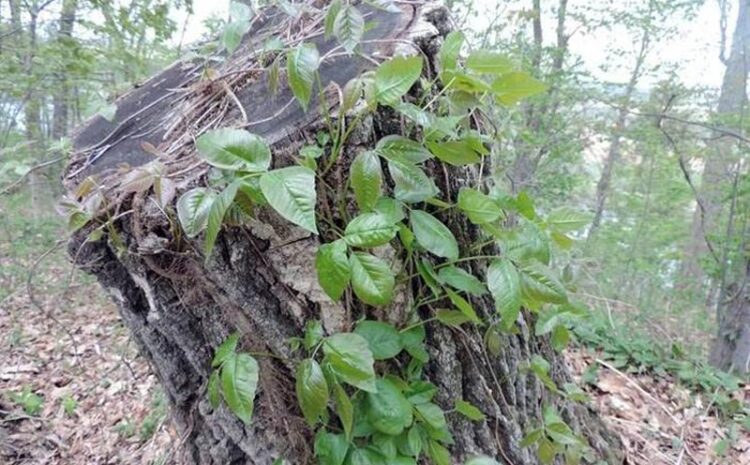AI-powered app can detect poison ivy

Poison Ivy
Credit: UF/IFAS
Poison ivy ranks among the most medically problematic plants. Up to 50 million people worldwide suffer annually from rashes caused by contact with the plant, a climbing, woody vine native to the United States, Canada, Mexico, Bermuda, the Western Bahamas and several areas in Asia.
It’s found on farms, in woods, landscapes, fields, hiking trails and other open spaces. So, if you go to those places, you’re susceptible to irritation caused by poison ivy, which can lead to reactions that require medical attention. Worse, most people don’t know poison ivy when they see it.
To find poison ivy before it finds you, University of Florida scientists published a new study in which they use artificial intelligence to confirm that an app can identify poison ivy.
Nathan Boyd, a professor of horticultural sciences at the UF/IFAS Gulf Coast Research and Education Center near Tampa, led the research. Renato Herrig, a post-doctoral researcher in Boyd’s lab, designed the app.
A screenshot of newly developed poison ivy app. Credit: Nathan Boyd, UF/IFAS
“We were the first to do this, and it was designed as a tool for hikers or others working outdoors,” Boyd said. “The app uses a camera to identify in real-time if poison ivy is present and provides you with a measure of certainty for the detection. It also functions even if you don’t have connectivity to the internet.”
The next step is to make the app commercially available, and there’s no timetable for that yet, Boyd said.
For the study, researchers collected thousands of images of poison ivy from five locations: Alderman’s Ford Conservation Park and Hillsborough River State Park, both in Florida; Eufala National Wildlife Refuge in Alabama; York River State Park in Virgina and Fall Creek Falls State Park in Tennessee.
They labeled images, and in each image, scientists put boxes around the leaves and stems of the plant. The boxed images were critical because poison ivy has a unique leaf arrangement and shape. Scientists use those characteristics to identify the plant.
They then ran the images through AI programs and taught a computer to recognize which plants are poison ivy. They also included images of plants that are not poison ivy or plants that look like poison ivy to be certain the computer learns to distinguish them.
“We believe that by integrating an object-detection algorithm, public health and plant science, our research can encourage and support further investigations to understand poison ivy distribution and minimize health concerns,” Boyd said. In their future work UF/IFAS researchers hope to expand the use of the app to identify more noxious plants.
Journal: Multimedia Tools and Applications
DOI: 10.1007/s11042-023-17920-3
Article Title: A mobile application to identify poison ivy (Toxicodendron radicans) plants in real time using convolutional neural network
Article Publication Date: 5-Jan-2024
Media Contact
Karen Dooley
University of Florida
dooleyk@ufl.edu
Cell: 3522190567
All latest news from the category: Agricultural and Forestry Science
Newest articles
Faster, more energy-efficient way to manufacture an industrially important chemical
Zirconium combined with silicon nitride enhances the conversion of propane — present in natural gas — needed to create in-demand plastic, polypropylene. Polypropylene is a common type of plastic found…

Energy planning in Ghana as a role model for the world
Improving the resilience of energy systems in the Global South. What criteria should we use to better plan for resilient energy systems? How do socio-economic, technical and climate change related…

Artificial blood vessels could improve heart bypass outcomes
Artificial blood vessels could improve heart bypass outcomes. 3D-printed blood vessels, which closely mimic the properties of human veins, could transform the treatment of cardiovascular diseases. Strong, flexible, gel-like tubes…





















